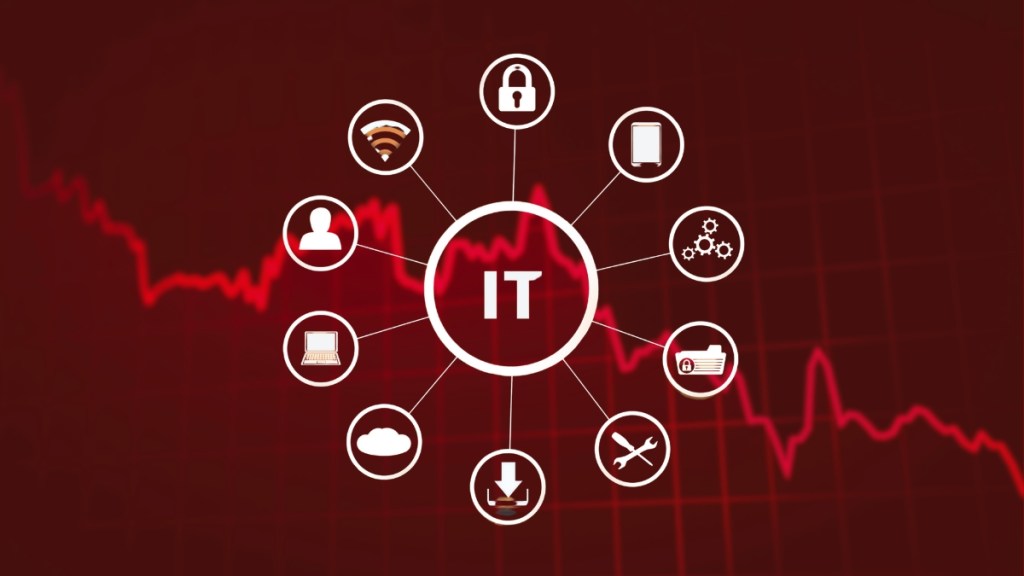The IT sector stocks are under severe selling pressure. The Nifty IT Index is down nearly 3% after US President Donald Trump passed an executive order to raise fees on new H-1B visa applications to $100k from $1500. Following this, the Indian IT companies slumped and held the lowest positions in the Nifty 50. Tech Mahindra declined as much as 6.5% to an intra-day low of Rs 1,453.30 on the National Stock Exchange. It was the major loser in the Nifty 50. Infosys followed Tech Mahindra, falling 3.8% to a low of Rs 1,482. Further, Tata Consultancy Services (TCS), Wipro, and HCL Technologies dropped over 3%.
However, most brokerages consider the impact will be short-term and more of a knee-jerk reaction. Over the longer term, most are optimistic about earnings and growth-
Nuvama on IT companies
Nuvama Institutional Equities stated that Indian IT companies can mitigate the impact by increasing nearshoring, offshoring, and/or hiring local talent.
The increase in visa fee (from the current $1500) is likely to affect the operations/financials of Indian IT companies, though the impact shall be limited, said Nuvama.
Nuvama stated that most of the IT Services companies will choose not to pay this higher fee, as the higher fee makes the H1B visa economically unviable. The brokerage said that the companies shall renegotiate their contracts with clients with a combination of three mitigation options. First, sharing the higher cost with the client or hiring more local talent in the US. Second, higher near-shoring (e.g. Canada or Latin America to be in the same time zone). Lastly, the higher offshoring (to India or other offshoring destinations).
Over the last eight years, the industry has already significantly reduced its reliance on H-1B visas. However, some near-term impact on operations and financials shall have to be borne by the companies. In the long term, higher offshoring is likely to mitigate a large part of the impact.
“Overall, we expect the sector to remain volatile in the near term, as uncertainty looms large. The impact on margins/earnings, though completely theoretical, is likely to be limited, as companies will explore cost-efficient ways of doing business,” added Nuvama.
Motilal Oswal on IT companies
“If new H-1Bs vanish, on-site revenues will decline, but so will on-site costs. This shift could improve operating margins, as offshore work tends to be structurally more profitable. The net effect on EPS could be neutral in the medium term, although top-line growth could be slower,” said the domestic brokerage firm Motilal Oswal Financial Services.
The brokerage further added that the program’s mechanics remain the same otherwise: employers must still sponsor foreign workers for roles requiring specialised skills, but now at a sharply higher cost.
Since H-1B lotteries and petitions are typically run in Q4–Q1, the first impact would likely be seen in FY27 petitions.
JM Financial on IT companies
JM Financial said that there are two scenarios, the first one is that the companies will replace all new H-1B requirements with local resources. Plus, they will gradually (over 6 years, as H-1B visas expire/convert into Green Card) move towards 100% non-visa dependence. Also, there will be an impact on margins. Assuming that $25k/annum wage differential between H-1B and local hires (due to upward wage pressure), resulting in a 15-50 basis points margin impact.
Secondly, which is more likely, the companies will replace 50% of H-1B base with local hires and offshore the remaining H-1Bs. “We estimate that higher offshoring can negate the impact of higher wages of local hires, thus making it financially neutral,” said JM Financial.
